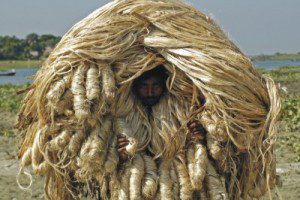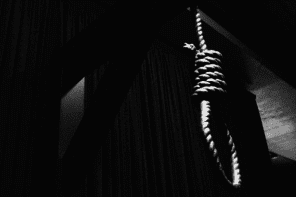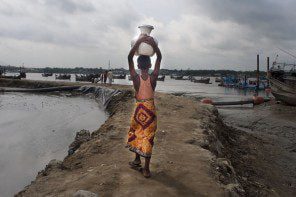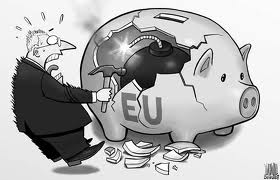Western sanction on Iran: Tough choices for Bangladesh
 Iran-US confrontations are edging closer to direct conflict. As a result there are fear and tension rising over polarization of international politics and down fall in certain areas of international trade and business. The whole situation is in a deadlocked because both the parties have gone for hard-line stand. A developing world’s representative like Bangladesh is trapped in a duel crisis due to its strategic relations with both the countries-United States & Iran. Relation important with both the states is mainly economic. Bangladesh has historic and continuous economic relations with these countries, which are major export destination of Bangladeshi products. Among export items raw jute, and apparels are the main product items. Bangladesh is one of the world’s largest producers of the vegetable fiber Jute, which is used to create a wide range of products including carpets, car interiors etc. Bangladesh used to enjoy almost a monopoly in Jute as its share in the world market was almost 80% in 1947-48; but in 1975-76 it fell to only 25%. This fall in market share was due to the fact that many other countries had started growing jute and allied fibers. Over 25% of the population in Bangladesh is involved in jute in one way or the other including production and post-harvest handling. Hundreds of established firms transform the raw material into a range of diversified jute products such as yarn, bags, sacks and handicrafts. Tens of thousands of people are engaged in this type of off-farm employment with the majority being women (60 to 70%). Until 1987 jute accounted for more than 50 percent of export revenue, with manufactures accounting for an increasing portion of the total (as compared with raw jute). Jute is a major industry in Bangladesh with an estimated 1.8 million metric tons in production and US$1.1 billion in exports in 2010-2011. A Bangladeshi daily The Financial Express reports, the 27 jute mills under the Bangladesh Jute Mills Corporation (BJMC) exported nearly 0.13 million tons worth BDT10.84 billion in the fiscal 12 (July-June), which was BDT9.38 billion a year ago (July 12, 2012). But, consistent with the global pattern, the United States market eroded fairly steadily over the years. Previously, the market for jute sacking was assisted by the fact that some recipient countries of American food aid specified burlap for their consignments from the United States because they had a secondary market for the bags.
Iran-US confrontations are edging closer to direct conflict. As a result there are fear and tension rising over polarization of international politics and down fall in certain areas of international trade and business. The whole situation is in a deadlocked because both the parties have gone for hard-line stand. A developing world’s representative like Bangladesh is trapped in a duel crisis due to its strategic relations with both the countries-United States & Iran. Relation important with both the states is mainly economic. Bangladesh has historic and continuous economic relations with these countries, which are major export destination of Bangladeshi products. Among export items raw jute, and apparels are the main product items. Bangladesh is one of the world’s largest producers of the vegetable fiber Jute, which is used to create a wide range of products including carpets, car interiors etc. Bangladesh used to enjoy almost a monopoly in Jute as its share in the world market was almost 80% in 1947-48; but in 1975-76 it fell to only 25%. This fall in market share was due to the fact that many other countries had started growing jute and allied fibers. Over 25% of the population in Bangladesh is involved in jute in one way or the other including production and post-harvest handling. Hundreds of established firms transform the raw material into a range of diversified jute products such as yarn, bags, sacks and handicrafts. Tens of thousands of people are engaged in this type of off-farm employment with the majority being women (60 to 70%). Until 1987 jute accounted for more than 50 percent of export revenue, with manufactures accounting for an increasing portion of the total (as compared with raw jute). Jute is a major industry in Bangladesh with an estimated 1.8 million metric tons in production and US$1.1 billion in exports in 2010-2011. A Bangladeshi daily The Financial Express reports, the 27 jute mills under the Bangladesh Jute Mills Corporation (BJMC) exported nearly 0.13 million tons worth BDT10.84 billion in the fiscal 12 (July-June), which was BDT9.38 billion a year ago (July 12, 2012). But, consistent with the global pattern, the United States market eroded fairly steadily over the years. Previously, the market for jute sacking was assisted by the fact that some recipient countries of American food aid specified burlap for their consignments from the United States because they had a secondary market for the bags.
Iran is also a large destination of raw jute and jute made products of Bangladesh. Iran uses Bangladeshi jute to weave the famous Persian rugs and carpets. But since sanctions hit Iran, jute exports of Bangladesh have dropped. Due to US blacklisting of Iranian banks, including the central bank of Iran, financial transactions have been restricted. Hence, Bangladeshi exporters’ shipments and orders are being cancelled, and hundreds of millions of dollars have been lost. Bangladesh exports of jute goods in Iran amounted to $889.45 million during July-May period of 2011-2012 fiscal, down from $1.0 billion in the 2010-2011 fiscal years, according to the Export Promotion Bureau (ERB). Export of jute in July 2012 was down by 13%, not only to Iran but also to Egypt, Syria, and Libya due to the effects of the Arab Spring, economic gloom in Europe, earthquake in Turkey, and flood in Thailand. Jute Mills Association leaders say, “Those who exported to Iran got caught in the embargo and their money has been tied-up in there.” Whatever goods the local millers have delivered could not yet realize payments as the world leaders have blacklisted most of the Iranian Banks from whom local banks collect export payments. Bangladesh’s billion-dollar jute trade, which about 40 million people in the country rely on to make a living, has suffered major losses due to sanction on Iran. Al- jazzier reports that, it is a matter of worry if black market traders try to take advantage of the situation by shipping through illegal channels that will only mean bad for Bangladesh as it will boost the black-market and hamper the international price. Direct and indirect pressure from the US and the EU on Bangladesh for not doing business with Iran is also seen as a reason for the set back in jute export. Government of Bangladesh has fallen into the dilemma of “which way to go”. Bangladesh can’t overlook United States factor as well as its need of national economic growth. Unless new markets are created, Bangladesh can’t ignore Iranian market. Alongside, Iran has a legendary carpet market and Iran-Bangladesh developed a strong tie over the times. Decision and policy makers of Government of Bangladesh falls between the devil and the deep sea. Now they have to choose a road from crossroads. For the time being she can take a stand of neutrality. But in the long run neutrality may not help Bangladesh in the bilateral relations with the disputed parties. Bangladesh may choose the Indian road. India pursue a dynamic strategy to ensure economic interest of hers by denying embargo and sanction on trade with Iran and legitimate approach in United Nations forum on issue of Iran’s nuclearization programme. As far as the national interest of Bangladesh, it doesn’t have privilege of breaking up relations with Iran because then trade interests in the Iranian market will be spoiled.
Relevant: 4TH SESSION OF BANGLADESH-RUSSIA COMMISSION: ALL YOU NEED TO KNOW







